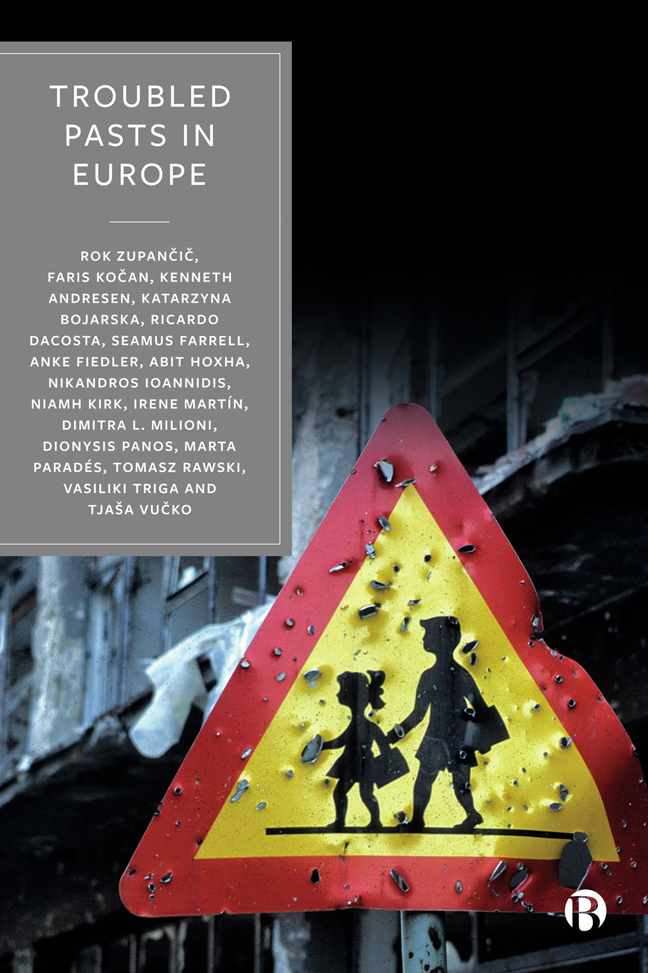 Troubled Pasts in Europe
Troubled Pasts in Europe Published online by Cambridge University Press: 25 January 2024
Developing policy recommendations based on comprehensive, in-depth research is not an easy task. Whether a recommendation is accepted by policy makers – and that is what matters in real life and what can (in our case) move us a step forward in addressing the difficult past – often depends on factors beyond the researchers’ control. This is one of the reasons why academic researchers, approaching the complexity of the social world in ways that are not straightforward, are often reluctant to write short and concise policy recommendations, even though they are aware that serious engagement in the process can have immense benefits for society (CARDI, 2012). In addition, researchers are often not adequately trained to communicate research findings in forms other than academic publications, even though publishing shorter, more widely understood texts is an important element in maximizing impact.
Finding a middle ground in making recommendations, which some may also view as watering down recommendations, is a process that takes time. However, if the recommendation is based on solid evidence on the one hand and does not fundamentally challenge the interests of key stakeholders on the other, the recommendation is more likely to be adopted. It should come as no surprise that this is difficult to achieve, especially in countries with a troubled past that are targeted by these recommendations.
This chapter explains the logic used to move from research findings to specific policy recommendations and is therefore organized as follows. First, it explains the process of creating the first version of the recommendations, which was based solely on the project's research findings. The second section explains how relevant interlocutors (policy makers and stakeholders) were involved in the process of revising the earlier versions of the recommendations. The third and final section describes how some of the interlocutors were additionally recruited for interviews and how some other perspectives from people who were not directly involved in this process were included in the final version of the recommendations.
Drafting the first version of the policy Recommendations
The RePAST research consortium had the aforementioned considerations in mind when thinking about how to compile the policy recommendations; they were to be written for the EU as an institution and for seven countries struggling with difficult pasts (Bosnia and Herzegovina, Cyprus, Germany, Ireland, Kosovo, Poland and Spain).
To save this book to your Kindle, first ensure [email protected] is added to your Approved Personal Document E-mail List under your Personal Document Settings on the Manage Your Content and Devices page of your Amazon account. Then enter the ‘name’ part of your Kindle email address below. Find out more about saving to your Kindle.
Note you can select to save to either the @free.kindle.com or @kindle.com variations. ‘@free.kindle.com’ emails are free but can only be saved to your device when it is connected to wi-fi. ‘@kindle.com’ emails can be delivered even when you are not connected to wi-fi, but note that service fees apply.
Find out more about the Kindle Personal Document Service.
To save content items to your account, please confirm that you agree to abide by our usage policies. If this is the first time you use this feature, you will be asked to authorise Cambridge Core to connect with your account. Find out more about saving content to Dropbox.
To save content items to your account, please confirm that you agree to abide by our usage policies. If this is the first time you use this feature, you will be asked to authorise Cambridge Core to connect with your account. Find out more about saving content to Google Drive.